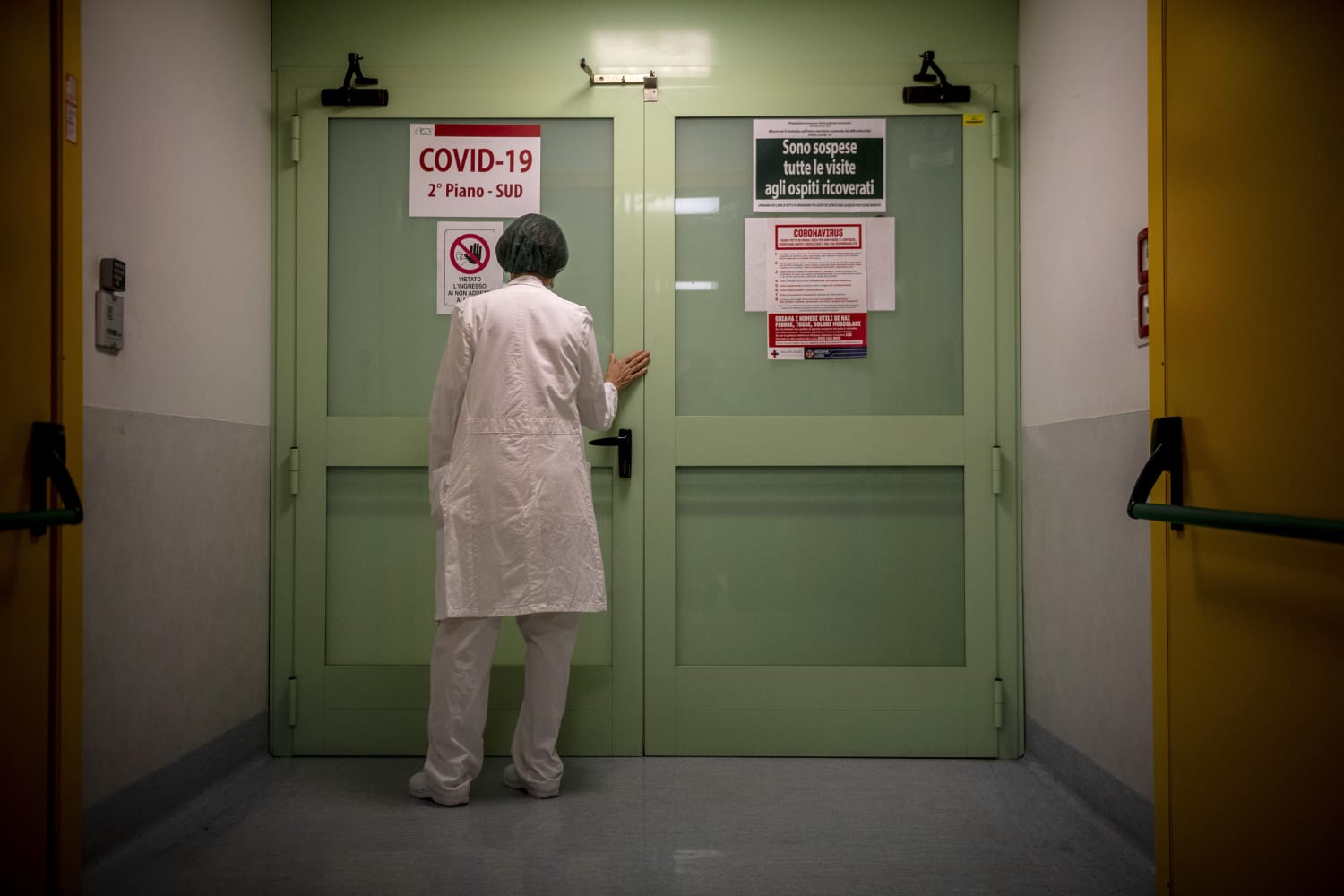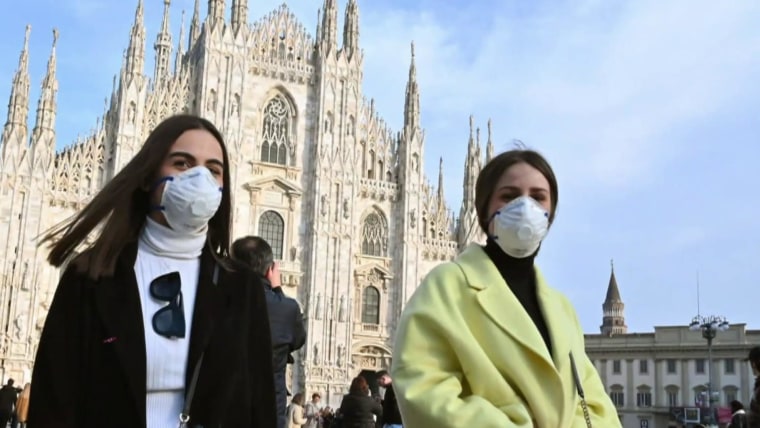Claudio Lavanga, NBC News’ Rome correspondent, has reported on a wide variety of stories. Most recently, he has helped document the pandemic’s terrible toll in Italy, where xxx have died and xxx been sickened. Now, as the country goes through a third Covid-19 wave, he describes how his family became part of the story.
ROME — Since Italy became the epicenter of the Covid-19 pandemic in Europe, I have kept track of the number of people testing positive every day. It quickly reached into the tens of thousands a cold daily toll, a war bulletin in a fight against an invisible enemy.
Then, on Jan. 23, that number struck home.
Of 1,331 people in Italy testing positive that day, one of them was my mother, Antonia — known to everybody who knew her as Antonietta.
So after a year of staying away because of Covid-19, I realized it was time to go back to the two-story white house I grew up in on the outskirts of Milan. It was time for me to see my mother — even from afar.
Antonietta greeted me from an annex above our family home where she is isolating from my father with my sister Maria, who earlier this year decided to quarantine with my mother and ended up catching the virus.
When I was a boy, my mother was a tiny benevolent dictator, shouting orders at us children from the house.
Now, separated from the world in a tiny apartment and by cinder blocks from my father, she could barely pronounce an audible “Ciao.”
Covid-19 didn’t only shrink her voice.
Standing in a window, she looked even tinier and frailer, and the fact that I couldn’t come close, let alone hug her, made the collateral damage caused by the virus apparent: This disease is not only deadly, it has also turned homes from safe havens into danger zones, and loved ones into Trojan horses.
Testing positive
Antonietta caught Covid-19 in another place that should’ve been a safe zone: a so-called Covid-free hospital. She has cancer and had been admitted for a series of tests in the oncology department.
The day after she checked in, I called to ask if she had slept well, and she told me: “No, a lady in my room coughed all night.”
Two days later, the roommate tested positive, and my mother was moved to isolation until the result of her own test came back.
The hospital was not equipped to deal with coronavirus patients, so terrified staff rarely entered her room. They would leave the food outside the door, like in a prison. To my mother, Covid-19 felt like a life sentence.
Three days later, she tested positive.
That this virus snuck into a hospital that was supposed to be free of it is a metaphor for Italy.
This country, particularly in the wealthy north, where my parents moved when they were newlyweds, has been devastated by the coronavirus. Money and abundant public services did not stop the virus from tearing through cities and villages, hospitals and retirement homes.
My parents are part of a defining generation of Italians who were lured from the south by the promise of safety, stability and prosperity.
The two first saw each other across the table at a family dinner in the town of Scampitella 50 years ago. She was 18, and Natalino, my father, 10 years her senior. They were soon married. Our family was carried along on a wave that lifted Italy out of its post-war destruction to become one of the richest countries in the world. And that was that.:
They worked tirelessly to make a life.
My father worked day and night at several jobs in neighboring Switzerland, but mostly as a truck driver and a wine merchant. On weekends he returned to Milan to finish the house. The second floor a separate apartment — was meant to lure one of us children back to live with them after they retired. None of us did, and it languished empty for years as a symbol of our ungratefulness.
Now, the apartment is my mother’s prison.
Face to mask
On a recent night, with my mother and sister held captive by the virus upstairs, my father and I sat at the kitchen table with a bottle of Primitivo — a red wine from the south of Italy where both he and my mother were born. Sharing a glass of wine is something I had wanted to do with my father long before I was of legal drinking age.
The oldest picture I have with my father is of me as a toddler trying to grab a glass of wine he was holding in his hand. These days it is me pouring it for him.
He told how, during one of his visits back home, he met my mother at a family dinner.
“We looked at each other: We knew,” he said.
What he is most proud of, he said, is that to marry my mother he didn’t have to kidnap her. In those days in small towns in the south, arranged marriages were still commonplace and couples often had to resort to “kidnapping” to marry their true loves.
Not so my parents. In their case there was no need for a kidnap or a shotgun wedding.
Natalino is not a man easy with intimacy, so I was taken aback when he blurted out: “She still looks beautiful. She always has been.”
They are in the same house, but he still misses her, and perhaps is afraid that he will miss the opportunity to tell her so himself.
She misses him, too.
One night at around 4 a.m. — after a month in isolation on the upper floor — my mother got up, dressed, rolled her oxygen cart to the door and opened it. The steep staircase must have looked like the descent from the Himalayas: Because of her mobility problems, every step is a slippery slope toward a possibly deadly fall.
Download the NBC News app for full coverage of the coronavirus outbreak
She dropped the oxygen, grabbed the handrail and walked down. She got to the apartment downstairs, unlocked the door and the alarm went off. It was meant to stop intruders from breaking in. And, in a way, that’s what my mother had become because of Covid-19: an escapee who broke out of lockdown, the Trojan horse in her own home.
My father woke up, startled by the deafening sound, jumped off the bed and rushed to the door. And there they stood, Maria tells me, face to mask, numb and confused, unable to remember the code to deactivate the door alarm.
It was a perfect metaphor for the situation the virus had put them in: Coming close to each other rose the alarm, and they did not quite know how to defuse the danger.
Source: | This article originally belongs to Nbcnews.com











